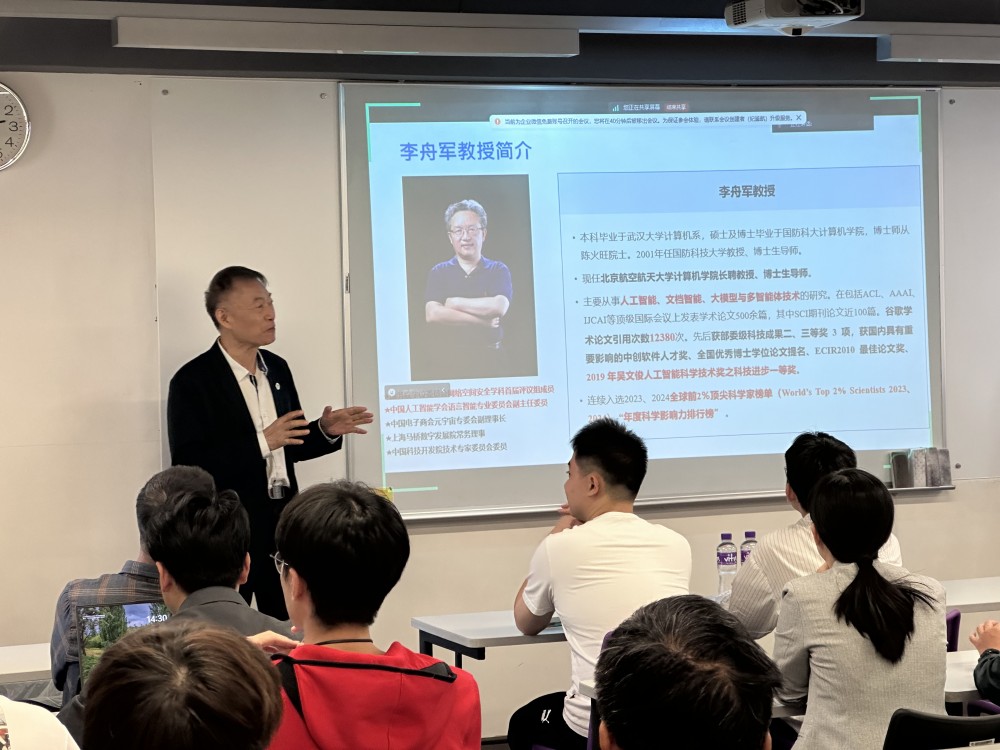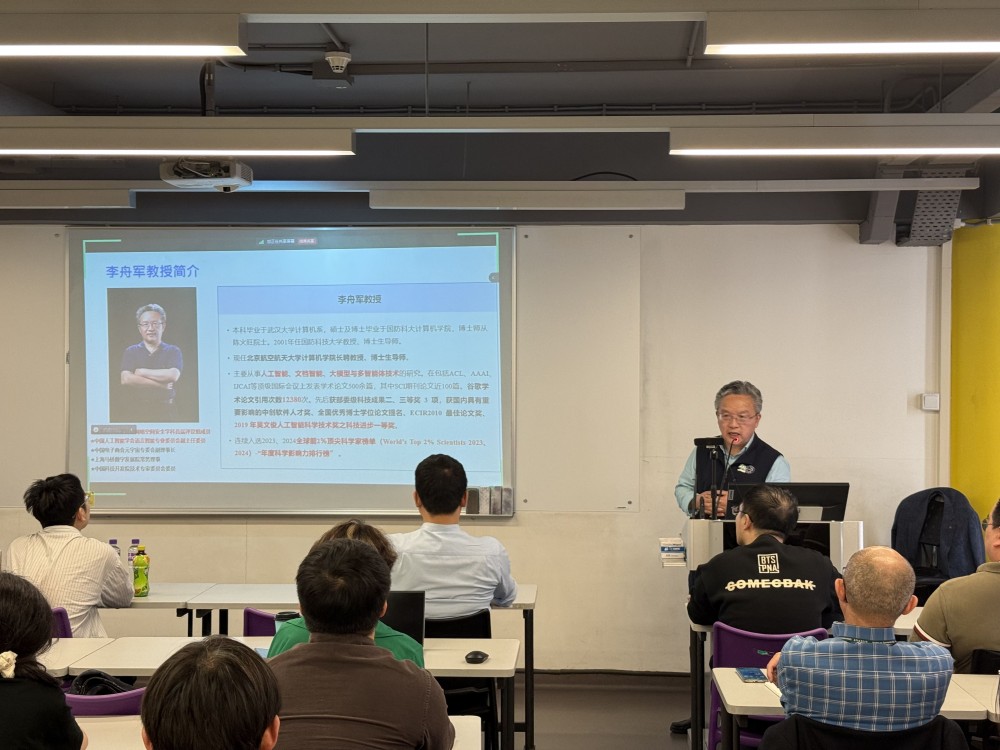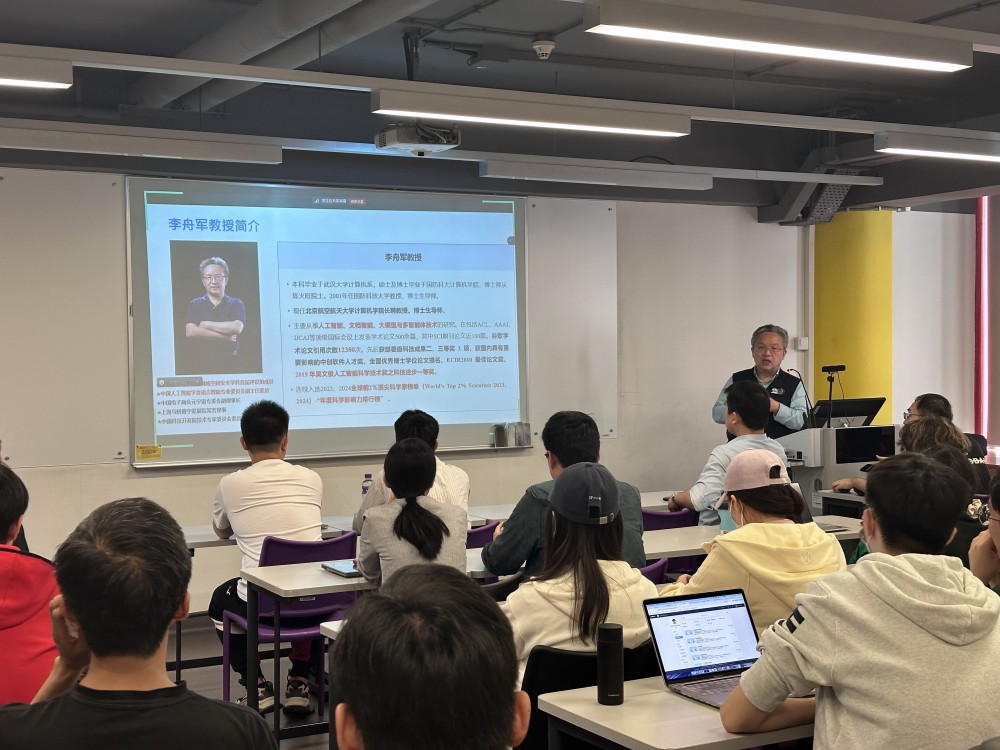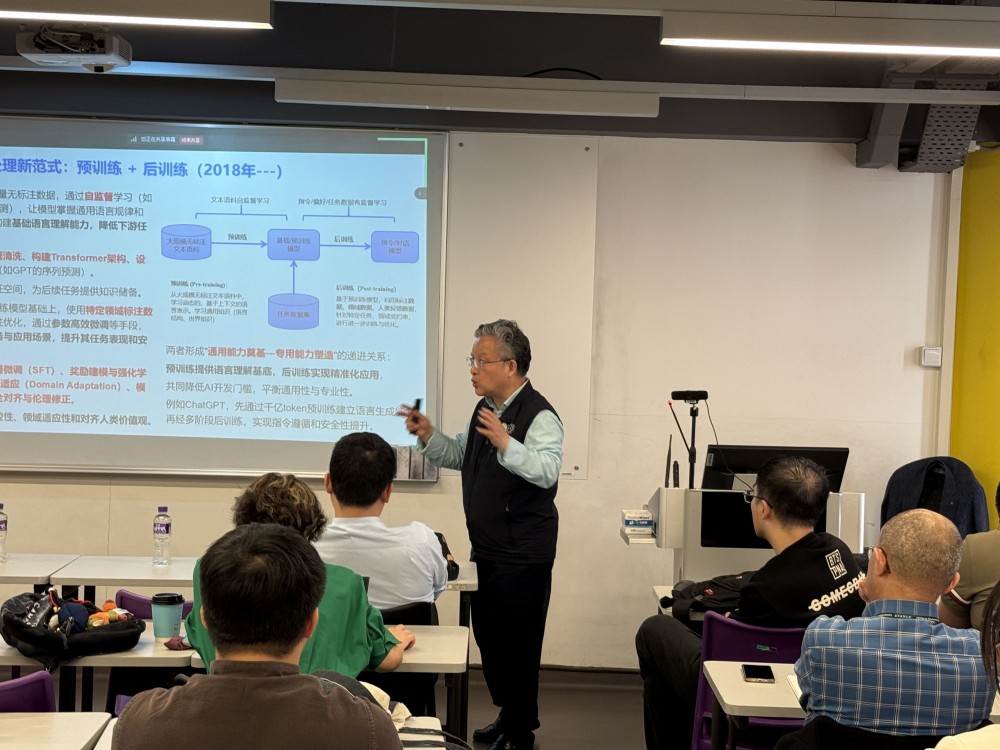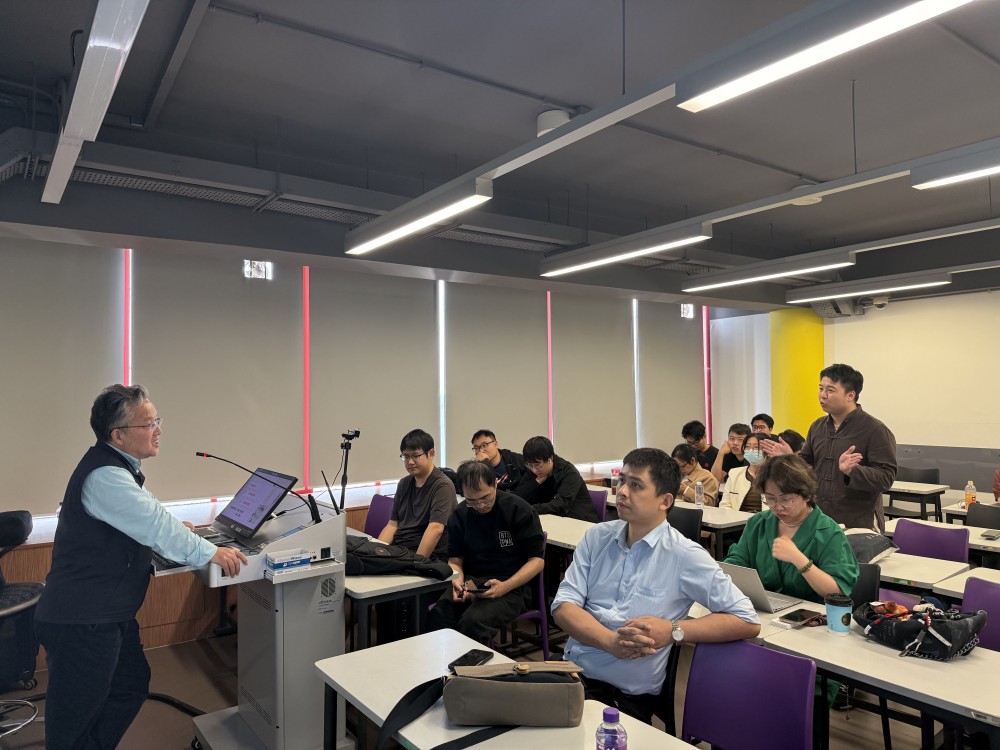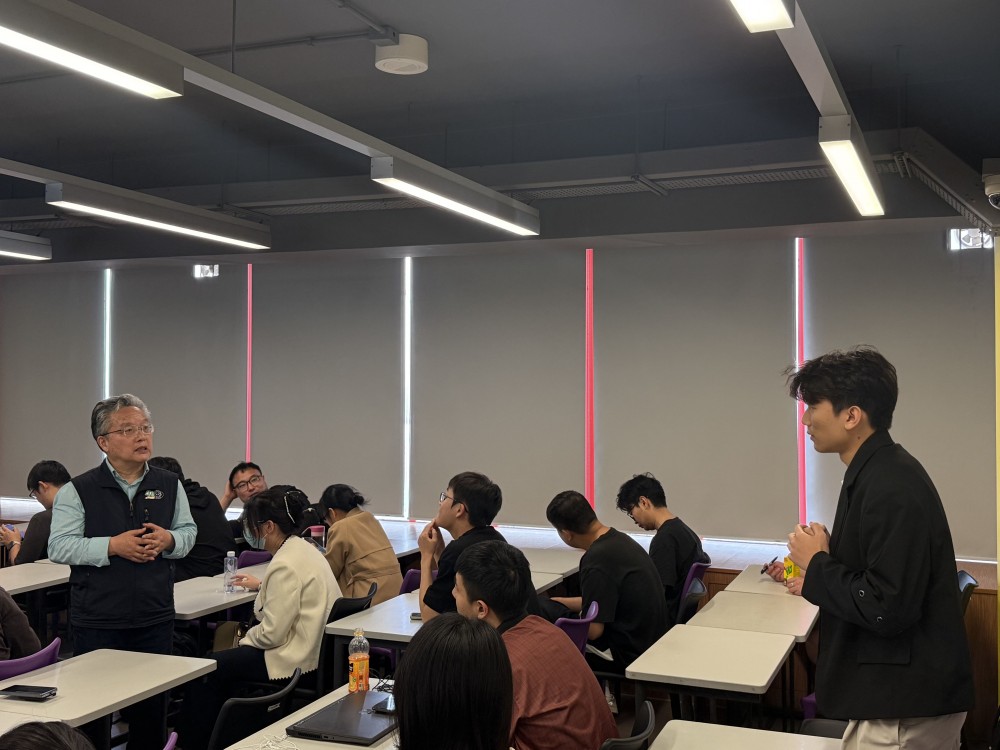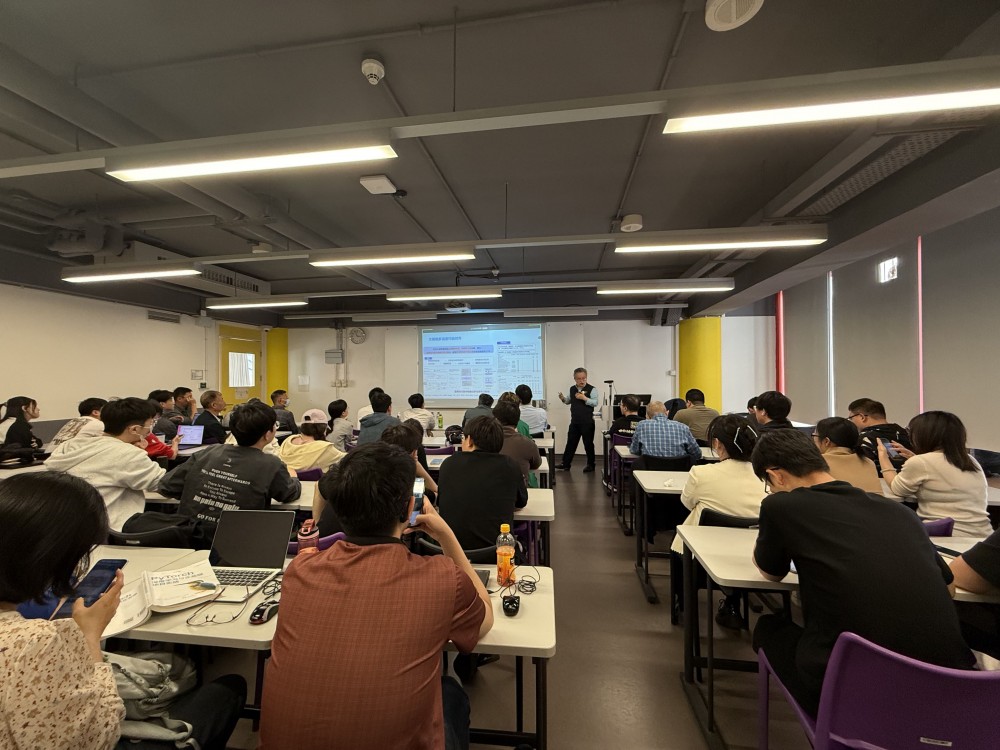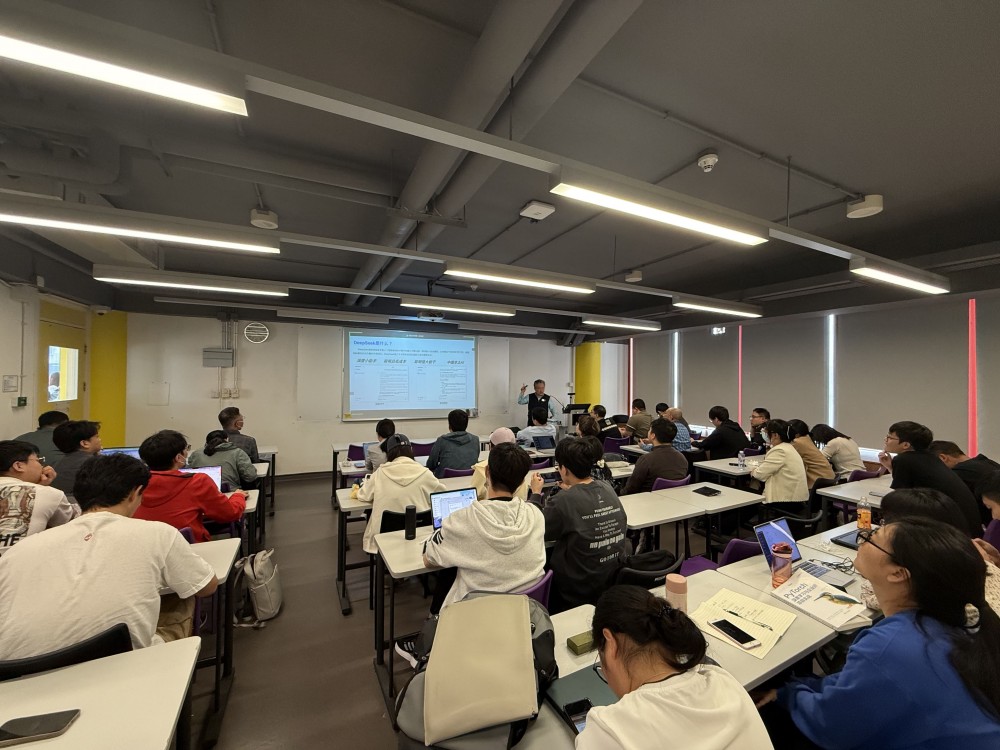On the afternoon of April 14, 2025, the Faculty of Data Science at City University of Macau hosted an academic lecture titled "DeepSeek Unveiled: Technical Principles and Applications" in Room L309. The event featured Professor Li Zhoujun, a tenured professor and doctoral supervisor at the Faculty of Computer Science, Beihang University, as the keynote speaker. Professor Li provided an in-depth analysis of the technological breakthroughs and industry application prospects of the inference large model DeepSeek R1.
Professor Li Zhoujun currently serves as the Director of the Information Security Department and Deputy Director of the Intelligent Information Processing Institute at Beihang University. He is also a member of the inaugural Academic Degrees Committee of the State Council’s Network Space Security Discipline Review Group and the Deputy Director of the Language Intelligence Committee of the Chinese Association for Artificial Intelligence. With long-term expertise in natural language processing, artificial intelligence, and cybersecurity, Professor Li has published over 500 academic papers in top-tier international conferences (e.g., AAAI, IJCAI, ACL) and SCI journals, accumulating 12,380 total citations (H-index 54) and a single-paper citation peak of 736. His accolades include the ECIR 2010 Best Paper Award, the Zhongchuang Software Talent Award, and the Wu Wenjun AI Science and Technology Progress First Prize. His research has consistently ranked him among the top 2% of global scientists in the Stanford University Annual Scientific Impact List (2023, 2024). His developed systems have been widely implemented across industries, delivering significant social and economic benefits.
The lecture centered on the technological innovations and practical applications of DeepSeek R1. Professor Li first reviewed the evolution of large models, clarifying the core distinctions between general-purpose and inference-focused models. He emphasized DeepSeek R1’s groundbreaking advantages in ultra-low training costs, optimization for Chinese-language scenarios, and open-source ecosystem empowerment, which have collectively sparked a viral phenomenon in academia and industry. Subsequently, Professor Li showcased real-world case studies of DeepSeek R1’s deployment across sectors such as finance, education, and public administration. For instance, the model enables high-precision risk prediction in finance, enhances decision-making efficiency in medical diagnostics, and drives intelligent service upgrades in education and legal fields. By significantly lowering development barriers for enterprises and fostering collaborative innovation through open-source ecosystems, DeepSeek R1 lays the groundwork for democratizing AI technologies.
The lecture concluded with a lively Q&A session, where attendees enthusiastically raised questions on topics such as model training efficiency, Chinese-language optimization strategies, and ethical risks. Professor Li addressed each query with clarity and depth. This event not only deepened the academic community’s understanding of inference large models but also provided critical insights for cross-disciplinary collaboration and industrial applications, further advancing the social implementation and innovative growth of artificial intelligence.

